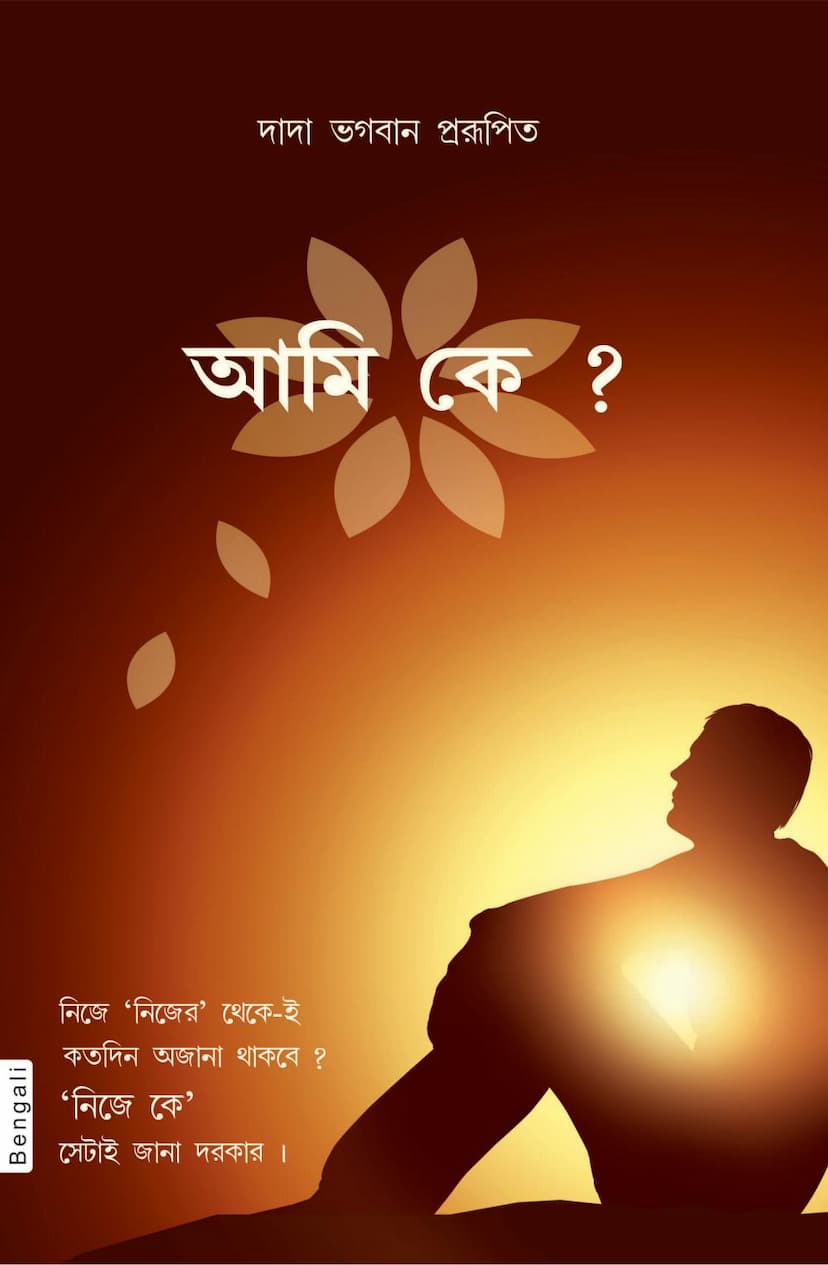Who Am I Bengali
Added to library: September 2, 2025

Summary
Here's a comprehensive summary of the Jain text "Who Am I Bengali" by Dada Bhagwan, based on the provided pages:
Overall Theme: The book is a discourse by Dada Bhagwan, a spiritual teacher, guiding seekers to understand their true Self, or "Who Am I?" It emphasizes the concept of "Akram Vignan" (the immutable science) as a direct path to self-realization, contrasting it with traditional gradual paths.
Core Message: The central message revolves around the idea that true identity is not the name, body, profession, or relationships we identify with. It is the pure Self, the Soul (Atma). The journey to realizing this Self involves shedding false beliefs and identifications.
Key Concepts and Discussions:
- The True "I": Dada Bhagwan repeatedly emphasizes the distinction between the "I" (the Self) and "My" (possessions, relationships, and body). The core of spiritual practice is to separate the "I" from "My." The "I" is permanent and unchanging, while "My" is temporary and external.
- False Beliefs ("Wrong Beliefs"): The book identifies numerous "wrong beliefs" that bind individuals to the cycle of suffering and rebirth. These include identifying with one's name ("I am Chandulal"), profession ("I am a lawyer"), relationships ("I am a husband," "I am a father"), body attributes ("I am fair"), and even egoism.
- The Akram (Unusual) Path: Dada Bhagwan presents "Akram Vignan" as a direct and swift path to self-realization. Unlike the gradual (kramik) path that requires many lifetimes of effort, Akram Vignan allows one to attain self-knowledge in a single lifetime, even while living a worldly life. It's likened to a "lift" to the top floor, bypassing the stairs.
- The Role of the Gnani (Knower): A living Gnani Purush (Enlightened Being) is essential for imparting self-knowledge. They are those who have realized their true Self and can then bestow that realization upon others. They act as a "separator" to distinguish the "I" from "My."
- The Nature of the World and God: The book debunks the notion of God as a creator of the world. It explains that the world functions through "Scientific Circumstantial Evidence" or a "governing energy" (Vyavasthit Shakti), not a personal creator. God is the true Self within every being, not an external entity.
- Moksha (Liberation): Moksha is not a distant destination but a state of being that can be attained in this very lifetime. It's described as the absence of worldly suffering and the realization of the Self. It's simpler than cooking a meal.
- The "I" vs. "My" Separation Process: The practical method involves dissecting all worldly identifications, starting from gross possessions and moving to subtle ones, until only the pure Self ("I") remains. This separation is facilitated by the Gnani through "Bhed Gyan" (discriminative knowledge).
- Karma and its Dissolution: The "Akram Vignan" helps to burn off karma in a spiritual fire. While some karma (like a solid block of ice) must be experienced, most of it is dissolved through the grace of the Gnani and adherence to His teachings.
- The Five Agnas (Commands): After receiving self-knowledge, adherence to five specific commands is crucial for maintaining the state of the Self, preventing new karma, and gradually dissolving existing karma. These commands act as a protective fence for the spiritual realization.
- Sants vs. Gnani Purush: Sants guide towards good and away from bad. Gnani Purush, however, liberate one from both good and bad karma, leading to ultimate liberation. Sants have knowledge of the Self but haven't fully realized it, whereas Gnani Purush have.
- "Dada Bhagwan" Identity: Dada Bhagwan clarifies that He Himself is not God, but a Gnani Purush. "Dada Bhagwan" is the pure Self residing within Him, the embodiment of the divine. He serves as a pointer to this inner divinity.
- Simandhar Swami: The text highlights Lord Simandhar Swami as the current Tirthankar in the Mahavideh Kshetra. His worship is recommended, especially when reciting the Navkar mantra, as He is the living Tirthankar.
- The Nature of "Self-Realization": Upon receiving self-knowledge, one begins to experience a shift. The initial realization might be fleeting, but with practice and adherence to the Gnani's teachings, the awareness of the pure Self becomes constant. The feeling of being "pure soul" replaces the false identification with the ego.
- "Pratikraman" (Retrospection and Asking for Forgiveness): This is a vital practice for rectifying mistakes made and preventing future ones. It involves remembering the pure Self of the person with whom a mistake was made and asking for forgiveness, with a firm resolve not to repeat the error.
In essence, the book provides a roadmap to discover the eternal, blissful Self by letting go of all worldly identifications and living in accordance with the teachings of a living Gnani Purush. It emphasizes the direct, effortless, and transformative nature of the Akram path.